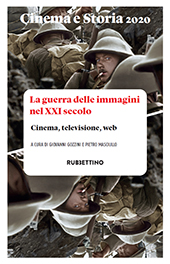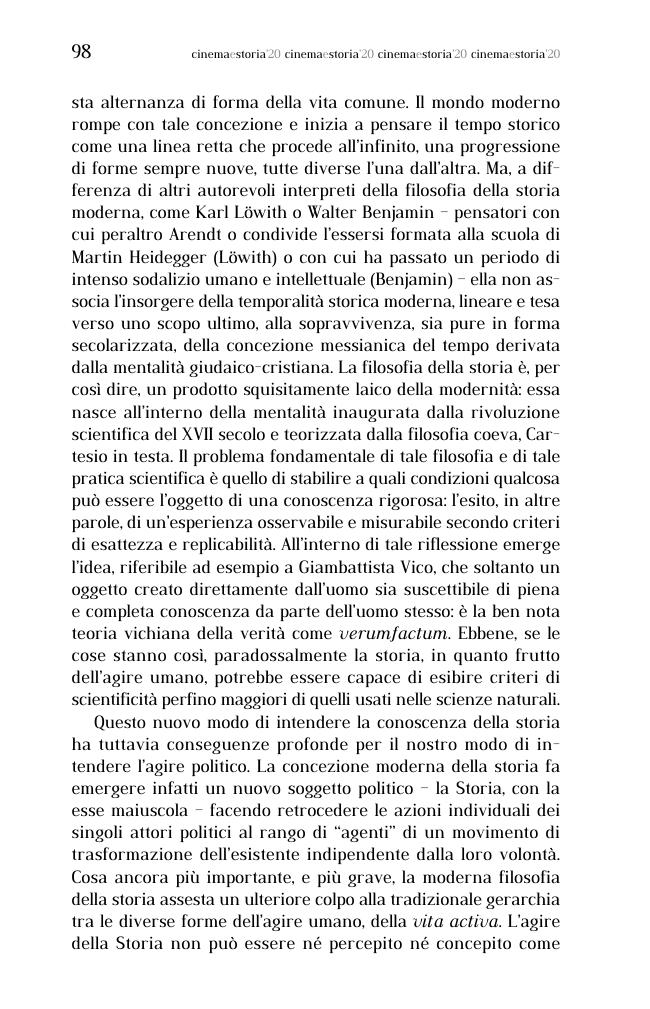L'11 settembre : l'evento-immagine come dispositivo storico-politico
P. 91-105
La testimonianza è uno dei tratti più caratteristici dell'esperienza storica contemporanea. Le immagini, in particolare i film, svolgono un ruolo chiave in questo contesto. Per quanto riguarda l'interpretazione stessa dell'età contemporanea, il potere di testimoniare posseduto dalle immagini comporta non solo la caratteristica dell'autenticità ma anche, e talvolta soprattutto, quella della autenticazione (Montani). In altre parole, i film sono rilevanti per l'esperienza del passato non solo quando descrivono eventi e situazioni reali, ma anche quando potenziano un processo di elaborazione del passato, indipendentemente dal fatto che siano immagini “false” o “vere”. La convalida politica dell'esperienza attraverso le immagini può migliorare la creazione di nuovi frame narrativi che ci aiutano a dare un senso ai vari usi dei media come azioni pubbliche.
L'11 settembre è, da questo punto di vista, un caso esemplare in quanto la diffusione di questo evento su Internet, così come il suo riutilizzo nella politica degli anni successivi, ha portato ad una nuova forma di “premediazione” (Grusin) di azioni politiche da parte delle reti multimediali. L'11 settembre, insieme alle sue numerose narrazioni attraverso diversi media (cinema, TV, internet ecc.), rivendica una nuova archeologia politica dei media (Kittler). [Testo dell'editore]
Bearing witness is one of the most characteristic traits of the contemporary experience of history. Pictures, and in particular movies, play a key role in this context. As far as the very interpretation of the contemporary age is concerned, the power of witnessing displayed by pictures entails not only the feature of authenticity but also, and sometimes predominantly, that of “validation” (Montani). In other words, motion pictures are relevant to the experience of the past not only when they depict real events and situations, but also when they empower a process of elaboration of the past, no matter whether they are “true” or “false” pictures. Political validation of an experience through pictures can enhance the creation of new narrative frames that help us make sense of the various uses of media as public actions.
9/11 is an exemplary case for this condition, since the spread of this event on the internet, as well as its reuse in the politics of the following years, caused a new form of “premediation” (Grusin) of political actions by media networks. 9/11, together with its several narratives through different media (cinema, TV, internet etc.), enables the claim of a new political media archaeology (Kittler). [Publisher's text]
-
Articles from the same issue (available individually)
-
Information
DOI: 10.1400/277439
ISSN: 2283-9852



